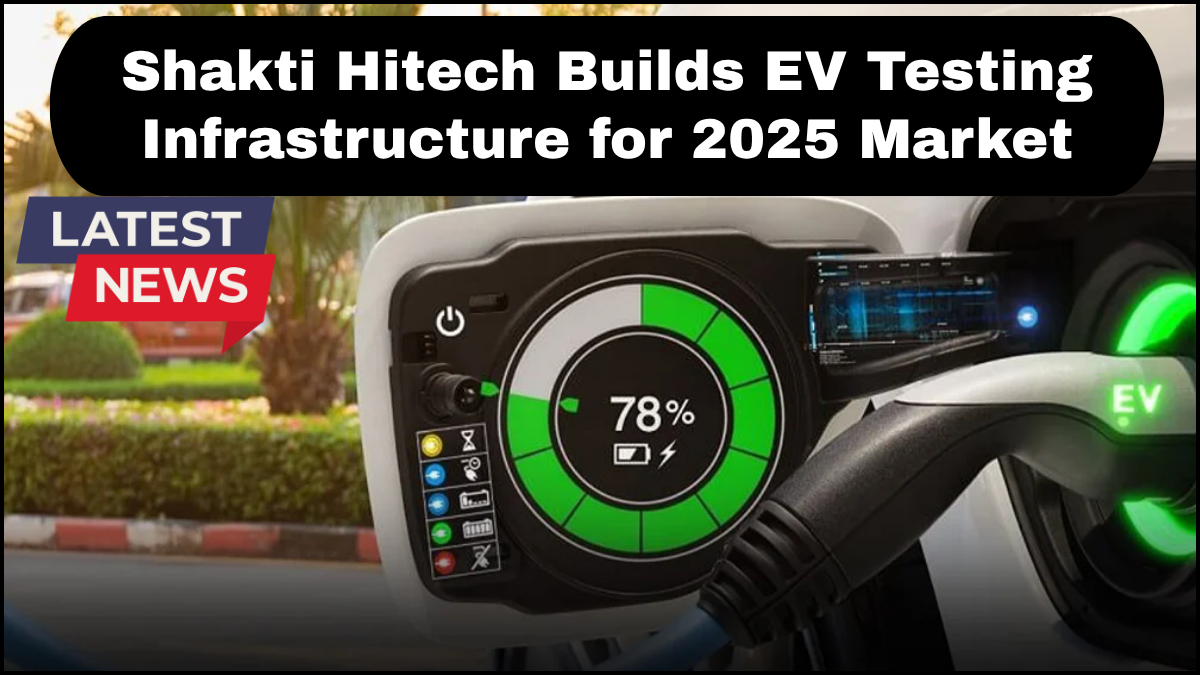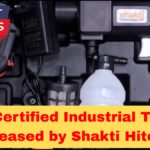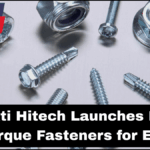As the electric vehicle (EV) market accelerates toward mainstream adoption, Shakti Hitech is making bold moves to prepare for a transformative 2025. The company is investing heavily in cutting-edge vehicle testing infrastructure that meets the demands of next-gen mobility. Leveraging lab automation, modular testing systems, and data-driven validation processes, Shakti Hitech aims to position itself as a central player in India’s growing EV ecosystem.

Meeting the Growing Demand for EV Testing
Electric vehicles demand a fundamentally different approach to testing compared to traditional internal combustion engine (ICE) vehicles. From battery performance to regenerative braking, software integration, and real-time analytics, EVs introduce complex new parameters.
To tackle these challenges, Shakti Hitech is developing a suite of advanced vehicle testing infrastructure tailored specifically for EV platforms. This includes battery test chambers, electric drivetrain dynamometers, power electronics validation rigs, and full vehicle simulation environments.
These systems are not just about durability or performance—they’re designed to capture nuanced data on energy efficiency, thermal management, safety protocols, and user interaction. By simulating real-world scenarios under controlled lab conditions, Shakti Hitech can deliver precise, actionable insights to OEMs and Tier 1 suppliers.
Integrating Lab Automation to Streamline Workflows
At the heart of this upgrade lies lab automation, a game-changer for high-throughput testing. Instead of relying solely on manual processes, Shakti Hitech is embedding automation tools into every layer of its test environments. Robotic arms, automated test benches, and AI-based data acquisition systems allow for 24/7 testing cycles with minimal human oversight.
This approach drastically cuts down testing time while enhancing repeatability and accuracy. For example, automated battery test setups can simulate hundreds of charge/discharge cycles in days rather than weeks, all while monitoring voltage drops, temperature spikes, and degradation patterns in real-time.
Shakti Hitech’s proprietary automation frameworks are also modular, meaning they can be reconfigured quickly to test different components—from inverters and e-axles to user interfaces—without needing entirely new hardware.
Future-Proofing with Scalable Infrastructure
The EV industry is evolving fast, and today’s standards may be obsolete tomorrow. Shakti Hitech’s testing ecosystem is built with scalability in mind. Its facilities are designed to support everything from small electric two-wheelers to heavy-duty commercial EVs, ensuring flexibility as the market diversifies.
Moreover, their infrastructure integrates cloud-based data management systems, enabling remote monitoring and collaboration. Engineers and developers can access test data in real-time, run diagnostics, and tweak test parameters from anywhere in the world—an essential feature in the era of distributed engineering teams.
Supporting OEMs and Startups Alike
Shakti Hitech isn’t just serving established manufacturers; it’s also working closely with EV startups that need affordable, high-quality testing services to bring their concepts to market. By offering modular, pay-per-use access to advanced vehicle testing infrastructure, the company lowers the entry barrier for new players in the industry.
This democratization of testing capabilities is expected to boost innovation across the EV landscape, especially in a market as dynamic and diverse as India.
Regulatory Compliance and Global Standards
With governments enforcing stricter safety and emissions regulations, rigorous testing is no longer optional—it’s a compliance requirement. Shakti Hitech aligns its testing protocols with international standards like ISO 6469, AIS 038, and UN R100, ensuring its clients are audit-ready for both domestic and export markets.
From crash simulations to electromagnetic compatibility (EMC) tests, the company’s expanded infrastructure ensures that every EV component meets or exceeds safety and performance benchmarks.
Frequently Asked Questions (FAQs)
Q1. Why is vehicle testing infrastructure important for EV development?
EVs require a completely different set of testing protocols than conventional vehicles. Specialized infrastructure ensures batteries, motors, and electronics are tested for efficiency, safety, and durability under various real-world conditions.
Q2. How does lab automation benefit EV testing?
Lab automation speeds up the testing cycle, improves accuracy, and reduces the risk of human error. It allows for round-the-clock testing and consistent data collection, which is vital for high-performance EVs.
Q3. What types of EVs can Shakti Hitech’s infrastructure support?
Shakti Hitech’s facilities are scalable and modular, capable of testing everything from electric two-wheelers and passenger cars to commercial electric buses and trucks.
Q4. Is Shakti Hitech’s testing system aligned with global standards?
Yes, the infrastructure complies with global testing standards and regulatory frameworks, ensuring OEMs meet the necessary certification requirements in both local and international markets.
Q5. Can startups access Shakti Hitech’s testing services?
Absolutely. Shakti Hitech offers flexible access models, making it feasible for startups to use advanced testing tools without the heavy capital investment typically required.
click here to learn more



